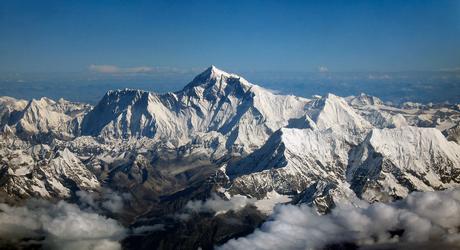 The Himalayan Times has an interesting story today that at least provides some food for thought and should spark some interesting conversations. A new research study indicates that extreme isolation in the mountains can actually drive high altitude climbers to madness, greatly increasing their risks and the chances of an accident.
The Himalayan Times has an interesting story today that at least provides some food for thought and should spark some interesting conversations. A new research study indicates that extreme isolation in the mountains can actually drive high altitude climbers to madness, greatly increasing their risks and the chances of an accident.The study comes our way from scientists from Eurac Research and the Medical University of Innsbruck, which has discovered a new affliction that is defined by isolated high-altitude psychosis. Researchers say that this condition can impact those trekking and climbing above 7000 meters (22,965 ft).
One researcher quoted in the story said “The mountaineer who suffers psychotic episodes may think he/she is being pursued and starts talking nonsense or changes the route without rhyme or reason.” They were also quick to point out that while the symptoms of this condition are purely psychotic, and while they are linked to altitude, they don't appear to be connected with high-altitude cerebral edema – aka HAPE or altitude sickness. For this reason, it should be considered a completely different and distinct condition.
The doctors conducting the study say they are still exploring exactly why the psychotic episodes occur, speculating that they have something to do with lack of oxygen, the isolation that comes from being at high altitude, stress, and perhaps the early signs of swelling in the brain. Further studies and research are needed to completely understand what is occurring to help diagnose the situation.
This study is obviously an intriguing one, and would help to explain some of the strange and tragic stories we've heard from high altitude expeditions in the past. It is too early to speculate on this topic and more research needs to be done to better understand it. Still, it is potentially an explanation as to why some climbers have acted so strangely when under stress at altitude. It is interesting to learn that it might not be caused by HAPE after all.
Read more about this topic here.

